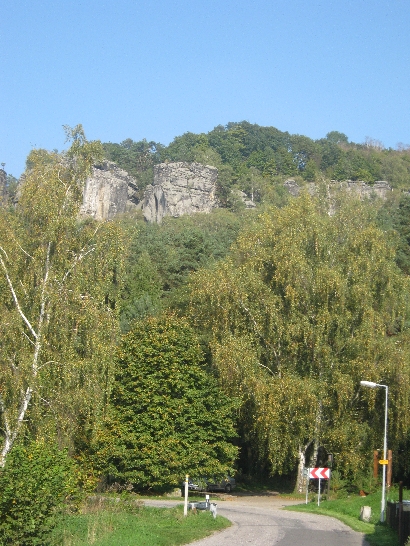
Yesterday, I officiated at the burial of ashes of two people, a husband and wife, into the family grave. Whilst this is something I would quite regularly do when Rector of a group of North Oxfordshire villages, this was the first time of doing so in just over six years of ministry here in the Czech Republic. I have also only conducted four funerals during that time, a reflection of the predominantly young age of the English-speaking expatriate population resident here.
However, although I conducted yesterday’s graveside service in English, it was very much a Czech occasion and was an illustration of several aspects of Czech life and culture. And because I want to protect the privacy of the family, I hope readers will forgive me for not referring to people or exact locations by name.
The existing family grave is located in the massive Olšanské Cemetery that lies in the Prague suburb of Žižkov. Whilst the cemetery is well-maintained by the local authority, like so much of Czech officialdom, it is not managed to encourage the practice of religious faith. Two things illustrated this.
The first was the attitude of the two cemetery staff who were present when we arrived at the grave. Whilst the grave had been opened and the appropriate hole dug, in true Czech bureaucratic style, the only thing that mattered to them was thoroughly checking the paperwork brought by the next of kin, the son of the deceased. Once they were convinced that the paperwork was in order, they just left us to it with a, ‘we’ll be back later to fill in’.
The second was the complete lack of provision for me. There was no chapel or vestry where I could robe & leave my belongings securely. Instead, aided by the eldest grandson of the deceased, who kindly held various things for me, I robed standing alongside a bench adjacent to a path running behind the family grave.
I have previously written about the Czech love of flowers which helps to keep innumerable flower shops and stalls in business. This love was very clearly in evidence with every family member arriving with a bunch of fresh flowers to lay on the grave. And I mean everybody, right down to the six great-grandchildren of the deceased.
However, it was what followed the graveside service which struck me as being so much part of Czech culture. The service was at 11.00 in the morning, so afterwards, everyone who attended was invited back to lunch. But lunch was not at the family flat in Mala Strana where I’d met the next of kin the previous day. Nor was it at a restaurant, not so far from the cemetery. No – we were all transported over thirty kilometres out of Prague into the Bohemian countryside, to a large three storey house – the family chalupa.
The house was built in the early 1930s, in a time that is now always referred to as ‘the First Republic’, when Czechoslovakia was an independent state between 1918-1938. The deceased couple were responsible for having it built.
The history of the house reflects the history of the nation. During the Second World War, when the country was occupied by the Nazis, there was a German military base nearby, so the house was commandeered to house a senior Nazi military officer. Then, following the communist coup of February 1948, the family were confined to the basement whilst the two floors above were occupied by others. Even after the Velvet Revolution of 1989 and the subsequent restitution of property laws, the family allowed a remaining ‘tenant’ to live in part of the house, until her death in the mid 1990s.
The son of the deceased gave a speech in which he recalled his childhood weekends and summer holidays, spent living in the basement and sleeping in a wooden ‘summer house’ in the garden. They were memorable times, despite the deprivation of the communist era.
And although he and his parents escaped to Switzerland in 1968, when he was in his late teens, and he, along with his wife and three of their four children, now live in England, this house in the Bohemian countryside is still the family home. Here, where his elderly uncle still lives, is where the soul of the family resides and was the only place where the lives of his late parents, who both lived into their nineties, could be properly celebrated.
The story of this family, could be told with some variations, by so many Czech families. The story also reflects the psyche of the wider Czech nation – that deep down Czech people believe that the soul of the nation is found in the forests, rivers and lakes of the Czech countryside. Even whilst we were eating our lunch yesterday, Má vlast, ‘My Country’ or ‘My Fatherland’ by Bedrich Smetana, was being played in the sitting room, music that encapsulates that very concept.

